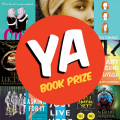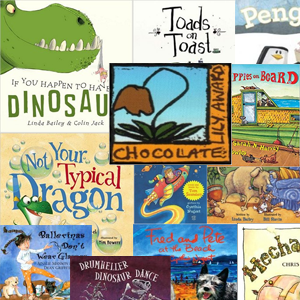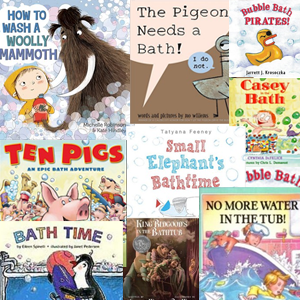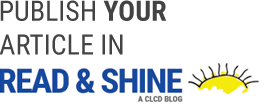Emergent Readers and Early Literacy: What Does It Mean?,By Peg Glisson
Author Ann Hassett often referred to emergent readers and early literacy in our conversation elsewhere in this Newsletter. Children must learn about reading and writing before they can actually read or write. This is considered early literacy. Emergent readers are developing phonological awareness skills, such as phonemes, syllables, and rhyme. Higher level emergent readers know many high-frequency words and are beginning to develop word-attack and comprehension strategies. While librarians are not reading teachers, librarians do help children develop a love of reading. That love fuels a desire to read, which is critical for learning to read. With schools, preschools, and storytimes starting up, librarians may be asked for information about early literacy and emergent readers. Or maybe you are feeling a bit rusty on some of the concepts or looking for something to jumpstart a new initiative. Much has been published about libraries and literacy efforts. Below is an annotated bibliography of articles and resources dealing with early literacy and emergent readers; it’s quite a smorgasbord so snack away!”AASL Learning Standards and Common Core State Standards Crosswalk.” AASL. American Library Association, n.d. Web. 29 Aug. 2013. <http://www.ala.org/aasl/standards-guidelines/crosswalk>. Landing page for aligning the AASL Standards for the 21st-Century Learner and the Common Core State Standards.”Early Literacy.” United for Libraries. American Library Association, n.d. Web. 29 Aug. 2013. <http://www.ala.org/united/products_services/booksforbabies/earlyliteracy>. Presents basic facts and links to studies and resources that show how early childhood literacy positively impacts success in school.”Early Literacy Archives.” ALSC Blog. ALSC, n.d. Web. 29 Aug. 2013. <http://www.alsc.ala.org/blog/category/early-literacy/>.Compilation of blog posts by working librarians.”Early Literacy Crosswalk.” Ohio Ready to Read. OHReady to Read, n.d. Web. 29 Aug. 2013. <http://ohelcrosswalk.wikispaces.com/Ohio+Early+Literacy+Crosswalk>. Designed to help help librarians and other early-childhood professionals understand the relationship between four early-literacy frameworks.”Early Literacy in Action.” ALSC. American Library Association, Nov. 2012. Web. 29 Aug. 2013. <http://www.ala.org/alsc/early-literacy-action>. Archived webinar teaching how to implement literacy efforts in your library and where to turn for partners.”Early Literacy Resources.” Ohio Ready to Read. OHReady to Read, n.d. Web. 29 Aug. 2013. <http://www.ohreadytoread.org/earlyliteracyresources.html>. Resources to promote the reading success of children.”Early Literacy @ the Library.” Pinterest. Pinterest, n.d. Web. 29 Aug. 2013. <http://www.alsc.ala.org/blog/category/early-literacy/>.Pictures and links to a multitude of literacy activities.”Early Warning Confirmed: Executive Summary of Research Update on Third Grade Reading.” Annie E. Casey Foundation. Annie E. Casey Foundation, n.d. Web. 29 Aug. 2013. <http://www.aecf.org/KnowledgeCenter/Publications.aspx?pubguid=%7B920859B1-181B-47C8-877E-F7A51E807DAE%7D>.2013 research report supports the link between reading deficiencies and broader social consequences.”Educational Literacy Apps.” Reading Rockets. WETA, n.d. Web. 29 Aug. 2013. <http://www.readingrockets.org/teaching/reading101/literacyapps/>.Reviews apps to further literacy.”Emergent Literacy.” Santa Monica Public Library. Santa Monica, CA Public Library, n.d. Web. 29 Aug. 2013. <http://smpl.org/Emergent_Literacy.aspx>. Provides pamphlets for preparing babies, toddlers, and preschoolers for reading.”Emergent Readers: Look! That’s My Letter!” Reading Rockets. WETA, n.d. Web. 29 Aug. 2013. <http://www.readingrockets.org/article/19298/>.Tips for parents working with emergent readers.”Every Child Ready to Read @ Your Library.” Every Child Ready to Read. American Library Association, n.d. Web. 29 Aug. 2013. <http://www.everychildreadytoread.org/>.Updated and expanded 2nd edition of joint PLA/ALSC initiative incorporates simple practices, based on research, to help parents and caregivers develop early literacy skills in children from birth to age five.”For Librarians.” Reading Rockets. WETA, n.d. Web. 29 Aug. 2013. <http://www.readingrockets.org/audience/professionals/librarians/>.Resources for Librarians, developed with the American Library Association.Goodling Institute for Research in Family Literacy. The Pennsylvania University, n.d. Web. 29 Aug. 2013. <http://www.ed.psu.edu/educ/goodling-institute/professional-development>. Under Family Literacy Certificate: Examples of Student Work, see Library Preschool Storytimes: Developing Early Literacy Skills in Children (http://www.ed.psu.edu/educ/goodling-institute/professional-development/Judy MacLean Library Preschool Storytimes.pdf)”The Importance of Play.” ALSC. American Library Association, n.d. Web. 29 Aug. 2013. <http://www.ala.org/alsc/importance_of_play>. Examines the role of play in early literacy, including a white paper, program ideas, and toolkit.Jensen, Margaret. “More Books for Beginning Readers.” CCBC A Library of the School of Education. University of Wisconsin-Madison, n.d. Web. 29 Aug. 2013. <http://www.education.wisc.edu/ccbc/books/detailListBooks.asp?idBookLists=506>. Lists trade books selected to meet the needs of children learning to read published from 1998-2011.”Literacy Development in Early Childhood Education.” Early Education. University of Michigan, n.d. Web. 29 Aug. 2013. <http://sitemaker.umich.edu/356.dulac/home>. Discusses First Encounters, Parents’ Role, Issues, and Suggestions for Teachers.”Read! Build! Play! Librarian Toolkit.” Lego Duplo Read! Build! Play! The Duplo Group, n.d. Web. 29 Aug. 2013. <http://readbuildplay.com/>.Joint project with ALSC promoting reading focused activities and resources to libraries nationwide. Includes a downloadable Librarian Toolkit, booklists, songs, activities, and building ideas.”School Readiness Interactive.” Zero to Three. National Center for Infants, Toddlers and Families, n.d. Web. 29 Aug. 2013. <http://www.zerotothree.org/early-care-education/school-readiness-interactive-birth-to-3/>. web-based, interactive learning tool designed to help parents and caregivers find age-based information on how children develop the four key skills—language and literacy skills, thinking skills, self-confidence and self-control—that are critical to later school success.”Stages of Development.” Reading A to Z. Reading A to Z, n.d. Web. 29 Aug. 2013. <http://www.readinga-z.com/readinga-z-levels/stages-of-development/>. Describes levels of emergent readers and books appropriate for each level. Updated 09/01/13To stay up to date on new books by this author, consider subscribing to The Children’s Literature Comprehensive Database. For your free trial, click here.If you’re interested in reviewing children’s and young adult books, then send a resume and writing sample to emily@childrenslit.com.Back to Top



